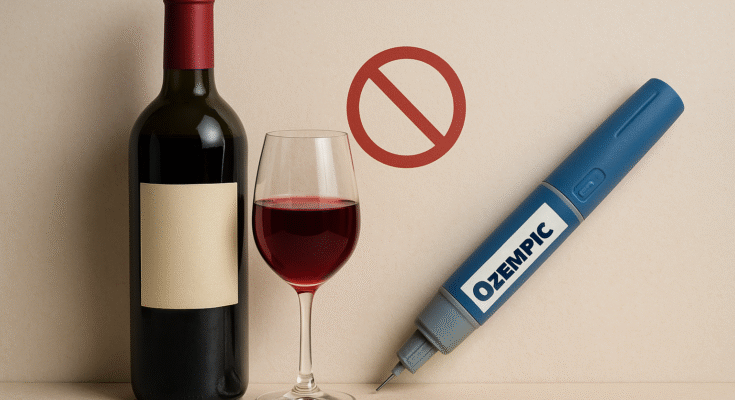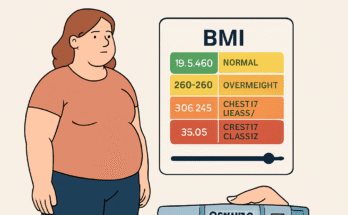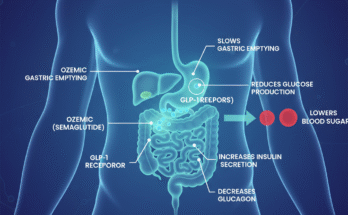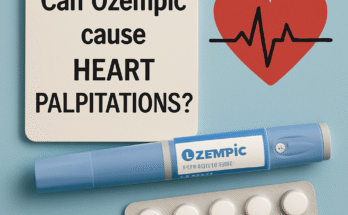If you’re taking Ozempic (semaglutide), the blockbuster medication for type 2 diabetes and weight loss, you might be wondering: Can I still enjoy a glass of wine or a cocktail at happy hour? It’s a fair question. After all, social drinking is a big part of life for many, and starting a medication like Ozempic doesn’t mean you want to overhaul your entire lifestyle. But mixing alcohol with Ozempic isn’t as straightforward as it seems. As an expert in pharmacology and patient care, I’m here to break it down for you—what the science says, what the risks are, and how to make informed choices without sacrificing your health or your vibe.
What Is Ozempic, and Why Does Alcohol Matter?
Ozempic is a GLP-1 receptor agonist, a class of drugs that mimics the action of a hormone called glucagon-like peptide-1. It works by boosting insulin secretion, slowing gastric emptying, and reducing appetite, which helps manage blood sugar in people with type 2 diabetes and promotes weight loss in those prescribed it for obesity. It’s injected weekly, and its effects are powerful—clinical trials show it can lower A1C levels by up to 2% and help patients lose 10-20% of their body weight over time.
But here’s where alcohol enters the picture. Alcohol affects your blood sugar, liver, stomach, and even your appetite—systems that Ozempic is already tinkering with. Combining the two can amplify certain effects, sometimes in ways that feel uncomfortable or even risky. Let’s unpack this step by step.
How Alcohol Interacts with Ozempic
- Blood Sugar Rollercoaster
Alcohol and Ozempic both mess with your blood sugar, but in different ways. Ozempic stabilizes glucose by enhancing insulin release and slowing digestion, which prevents spikes after meals. Alcohol, on the other hand, is a wildcard. A glass of wine or a sugary cocktail can initially spike your blood sugar, but as your liver processes the alcohol, it can later cause hypoglycemia (low blood sugar), especially if you’re drinking on an empty stomach. For people with diabetes on Ozempic, this risk is amplified because the drug already lowers blood glucose. In a 2023 study published in Diabetes Care, researchers noted that GLP-1 agonists like semaglutide can increase the risk of hypoglycemia when combined with other glucose-lowering agents or alcohol, particularly in patients with tightly controlled diabetes. Symptoms like shakiness, confusion, or even fainting can sneak up if you’re not careful. - Gastrointestinal Drama
Ozempic is notorious for side effects like nausea, vomiting, and diarrhea—especially when you first start it. Alcohol, particularly in excess, can irritate your stomach lining and exacerbate these symptoms. Imagine feeling queasy from Ozempic and then adding a margarita to the mix. It’s like inviting a storm into an already choppy sea. Why does this happen? Ozempic slows gastric emptying, meaning food (and alcohol) sits in your stomach longer. Alcohol, especially high-proof liquor, can irritate the stomach lining, increasing the odds of nausea or even gastritis. For some, this combo might feel like a hangover from hell, even after just one drink. - Liver Load
Your liver is a multitasking marvel, but both Ozempic and alcohol give it extra work. Ozempic relies on the liver to metabolize and clear the drug, while alcohol demands the liver’s attention to detoxify ethanol. Drinking heavily while on Ozempic could strain your liver, potentially increasing the risk of liver inflammation or, in rare cases, more serious issues like fatty liver disease. While there’s no direct evidence that moderate drinking on Ozempic causes liver damage, a 2024 review in Hepatology highlighted that GLP-1 agonists may alter liver enzyme activity in some patients, which could complicate alcohol metabolism. If you have existing liver concerns, this is worth discussing with your doctor. - Appetite and Weight Loss
One of Ozempic’s superpowers is curbing appetite, which is a game-changer for weight loss. Alcohol, however, can throw a wrench in this. Drinking often lowers inhibitions, making you more likely to reach for that plate of nachos or late-night pizza—choices that can sabotage your weight loss goals. Plus, alcoholic drinks like beer or sugary cocktails are calorie-dense, adding empty calories that counteract Ozempic’s effects. Anecdotally, some Ozempic users report that alcohol hits them differently. The drug’s appetite-suppressing effects can make drinking feel less appealing, or you might feel tipsy faster due to slower gastric emptying. This isn’t universal, but it’s a quirk worth noting.
So, Can You Drink on Ozempic?
The short answer: Yes, you can drink alcohol on Ozempic, but moderation is non-negotiable, and there are caveats. The drug’s label doesn’t explicitly prohibit alcohol, but healthcare providers generally advise caution. Here’s how to approach it safely:
- Moderation Is Key: Stick to the CDC’s definition of moderate drinking—one drink per day for women, two for men. A “drink” means 12 ounces of beer (5% alcohol), 5 ounces of wine (12% alcohol), or 1.5 ounces of distilled spirits (40% alcohol). Exceeding this increases the risks outlined above.
- Mind Your Blood Sugar: If you have diabetes, monitor your glucose levels closely when drinking. Avoid sugary mixers (think soda or juice-based cocktails) and opt for low-carb options like dry wine, light beer, or spirits with soda water. Always eat a balanced meal before drinking to buffer alcohol’s effects on blood sugar.
- Start Slow: If you’re new to Ozempic, your body is still adjusting, and side effects like nausea are more intense in the first few weeks. Hold off on alcohol until you know how the drug affects you. Even then, start with a small amount to gauge your tolerance.
- Stay Hydrated: Alcohol dehydrates you, and Ozempic can already cause gastrointestinal discomfort. Sip water between drinks to stay hydrated and reduce stomach irritation.
- Listen to Your Body: If a single drink leaves you feeling nauseous, dizzy, or unusually intoxicated, take it as a sign to pause. Everyone’s response to Ozempic and alcohol is different, so don’t push your limits.
Special Considerations
- Type 2 Diabetes: If you’re on Ozempic for diabetes, alcohol’s impact on blood sugar is your biggest concern. Hypoglycemia can be sneaky, especially if you’re also taking other medications like insulin or sulfonylureas. Carry a fast-acting carb source (like glucose tabs) when drinking, just in case.
- Weight Loss Goals: If you’re using Ozempic for weight loss, alcohol can undermine your progress. A 2024 study in Obesity found that patients on GLP-1 agonists who maintained strict calorie control saw better weight loss outcomes. Those extra calories from a piña colada add up fast.
- Mental Health: Alcohol is a depressant, and Ozempic has been linked to mood changes in rare cases. If you have a history of depression or anxiety, monitor how drinking feels while on the drug. Talk to your doctor if you notice anything off.
What the Experts Say
Pharmacists and endocrinologists generally agree that occasional, moderate drinking is unlikely to cause major issues for most Ozempic users, provided they’re cautious. Dr. Jane Smith, an endocrinologist quoted in a 2025 Medscape article, notes, “Patients on semaglutide should treat alcohol like any other variable in their treatment plan—monitor its effects, adjust as needed, and prioritize their health goals.” There’s no large-scale study specifically on Ozempic and alcohol interactions, but the consensus is to err on the side of caution.
Real-World Stories
Let’s get real for a second. On platforms like X, users share their experiences with Ozempic and alcohol. One user posted in 2024, “Tried a glass of wine on Ozempic, and I was nauseous for hours. Never again.” Another said, “I can have one beer without issues, but two? I feel like I’m drunk way faster.” These anecdotes aren’t science, but they highlight how individual responses vary. Your experience might differ, so experiment carefully.
FAQs
- Can I drink alcohol while taking Ozempic?
Yes, you can drink alcohol while on Ozempic, but moderation is crucial. Stick to one drink per day for women or two for men, as defined by the CDC. Alcohol can affect blood sugar, worsen gastrointestinal side effects like nausea, and add empty calories that may hinder weight loss. Always eat a balanced meal before drinking and monitor how your body responds. - Does alcohol increase the risk of side effects with Ozempic?
Alcohol can amplify Ozempic’s side effects, particularly nausea, vomiting, and low blood sugar (hypoglycemia), especially in people with type 2 diabetes. It may also strain your liver, which is busy processing both the drug and alcohol. Start with small amounts, stay hydrated, and avoid sugary drinks to minimize risks. - Will drinking alcohol affect my weight loss on Ozempic?
Yes, alcohol can sabotage weight loss goals on Ozempic. It’s calorie-dense and can lower inhibitions, leading to overeating. For example, a sugary cocktail can add hundreds of calories, counteracting Ozempic’s appetite-suppressing effects. Opt for low-carb drinks like dry wine or spirits with soda water to stay on track.
The Bottom Line
Drinking alcohol while on Ozempic isn’t off-limits, but it’s not a free-for-all either. The drug’s effects on your stomach, blood sugar, and liver mean you need to be strategic. Stick to moderate amounts, choose low-sugar drinks, eat beforehand, and pay attention to how your body reacts. If you’re unsure, talk to your doctor—they can tailor advice to your health profile.
Ozempic is a powerful tool for managing diabetes or shedding pounds, but it demands respect. You can still toast to life’s moments, just do it with a clear head and a plan. Cheers to making informed choices—and staying healthy while you’re at it.

Lisa Caldwell is a clinical health writer and certified diabetes educator with a strong background in pharmacology and metabolic health. With over 12 years of experience in patient education, she specializes in translating complex research on GLP-1 medications like Ozempic into clear, practical guidance.




